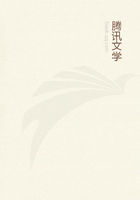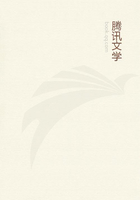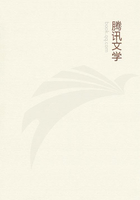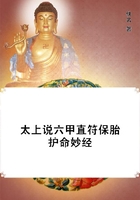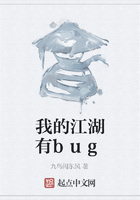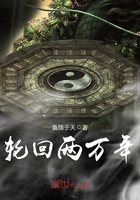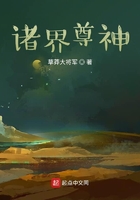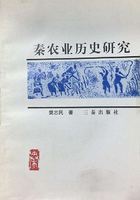Livingstone discusses the Greek Genius as displayed to us in certain "notes"--the Note of Beauty--the Desire for Freedom--the Note of Directness--the Note of Humanism--the Note of Sanity and of Many-sidedness. Upon some of these characteristics we shall have occasion to dwell in the brief sketch of the rise of scientific medicine among this wonderful people.
We have seen that the primitive man and in the great civilizations of Egypt and Babylonia, the physician evolved from the priest--in Greece he had a dual origin, philosophy and religion. Let us first trace the origins in the philosophers, particularly in the group known as the Ionian Physiologists, whether at home or as colonists in the south of Italy, in whose work the beginnings of scientific medicine may be found. Let me quote a statement from Gomperz:
"We can trace the springs of Greek success achieved and maintained by the great men of Hellas on the field of scientific inquiry to a remarkable conjunction of natural gifts and conditions. There was the teeming wealth of constructive imagination united with the sleepless critical spirit which shrank from no test of audacity; there was the most powerful impulse to generalization coupled with the sharpest faculty for descrying and distinguishing the finest shades of phenomenal peculiarity; there was the religion of Hellas, which afforded complete satisfaction to the requirements of sentiment, and yet left the intelligence free to perform its destructive work; there were the political conditions of a number of rival centres of intellect, of a friction of forces, excluding the possibility of stagnation, and, finally, of an order of state and society strict enough to curb the excesses of 'children crying for the moon,' and elastic enough not to hamper the soaring flight of superior minds.... We have already made acquaintance with two of the sources from which the spirit of criticism derived its nourishment--the metaphysical and dialectical discussions practiced by the Eleatic philosophers, and the semi-historical method which was applied to the myths by Hecataeus and Herodotus.
A third source is to be traced to the schools of the physicians.
These aimed at eliminating the arbitrary element from the view and knowledge of nature, the beginnings of which were bound up with it in a greater or less degree, though practically without exception and by the force of an inner necessity. A knowledge of medicine was destined to correct that defect, and we shall mark the growth of its most precious fruits in the increased power of observation and the counterpoise it offered to hasty generalizations, as well as in the confidence which learnt to reject untenable fictions, whether produced by luxuriant imagination or by a priori speculations, on the similar ground of self-reliant sense-perception."[3]
[3] Gomperz: Greek Thinkers, Vol. I, p. 276.
The nature philosophers of the Ionian days did not contribute much to medicine proper, but their spirit and their outlook upon nature influenced its students profoundly. Their bold generalizations on the nature of matter and of the elements are still the wonder of chemists. We may trace to one of them, Anaximenes, who regarded air as the primary principle, the doctrine of the "pneuma," or the breath of life--the psychic force which animates the body and leaves it at death--"Our soul being air, holds us together." Of another, the famous Heraclitus, possibly a physician, the existing fragments do not relate specially to medicine; but to the philosopher of fire may be traced the doctrine of heat and moisture, and their antitheses, which influenced practice for many centuries. There is evidence in the Hippocratic treatise peri sarkwn of an attempt to apply this doctrine to the human body. The famous expression, panta rhei,--"all things are flowing,"--expresses the incessant flux in which he believed and in which we know all matter exists. No one has said a ruder thing of the profession, for an extant fragment reads: ". . . physicians, who cut, burn, stab, and rack the sick, then complain that they do not get any adequate recompense for it."[4]
[4] J. Burnet: Early Greek Philosophy, 1892, p. 137, Bywater's no. LVIII.
The South Italian nature philosophers contributed much more to the science of medicine, and in certain of the colonial towns there were medical schools as early as the fifth century B.C. The most famous of these physician philosophers was Pythagoras, whose life and work had an extraordinary influence upon medicine, particularly in connection with his theory of numbers, and the importance of critical days. His discovery of the dependence of the pitch of sound on the length of the vibrating chord is one of the most fundamental in acoustics. Among the members of the school which he founded at Crotona were many physicians. who carried his views far and wide throughout Magna Graecia. Nothing in his teaching dominated medicine so much as the doctrine of numbers, the sacredness of which seems to have had an enduring fascination for the medical mind. Many of the common diseases, such as malaria, or typhus, terminating abruptly on special days, favored this belief. How dominant it became and how persistent you may judge from the literature upon critical days, which is rich to the middle of the eighteenth century.

